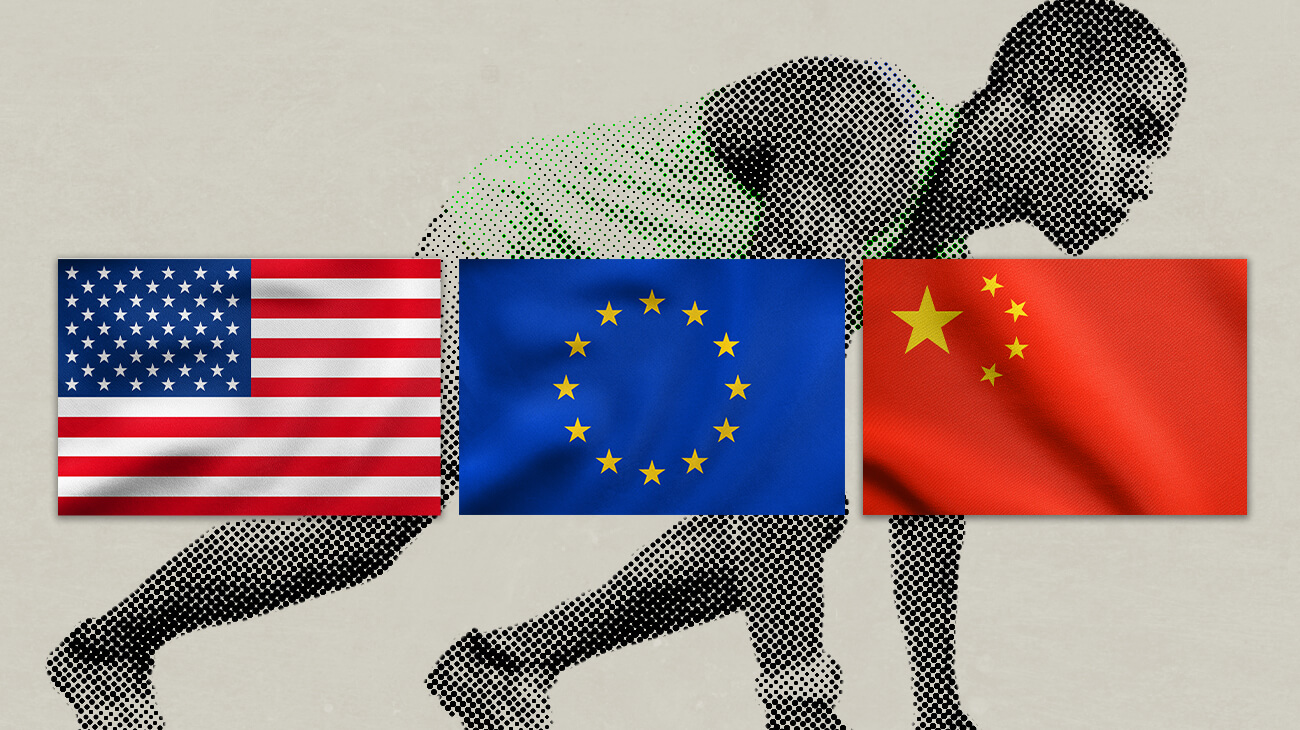Energy security and new laws fuel clean energy race
Latest News
Nations are increasingly competing to establish themselves as pioneers of clean energy technologies, racing to boost energy self-sufficiency and green their economies.
The urgency to fight climate change is leading to promising collaborations among governments, businesses and investors, as we recently reported.
But geopolitical tensions and a renewed desire for energy independence, driven by the war in Ukraine, are driving parallel efforts to prop up the development of domestic next-generation cleantech industries that could become immensely profitable for regional economies.
Asked by Cipher about the global cleantech race during a recent tour of an advanced nuclear lab near Seattle, U.S. Secretary of Energy Jennifer Granholm pointed to China, saying it “has corned the market” on many solar designs, as well as battery and cell assembly for electric vehicles—a dominance that has irked the West for years.
“We said…‘no more’: we’re going to incentivize the production of those technologies in the United States,” Granholm said last week. “It’s a whole strategy to develop both supply chains and assembly of these technologies, which are a $23 trillion market by 2030.”
Granholm added: “We’re going to stamp it ‘Made in America.’ We’re going to use it here and maybe we’ll export it there, too.”
“Competition is good no matter what. But it’s got to be a level playing field. And up to this point, it’s not been,” Granholm said. “We have been bringing a knife to a gunfight. Now it’s a level playing field.”
The clean energy race isn’t new, but China has been dominating it for years. The U.S. and other nations are inching closer with new laws.
China is likely to remain the biggest spender on clean energy despite these efforts, data compiled by BloombergNEF shows.
A March report from the International Energy Agency outlines how China strengthened its position as a global energy innovator over the last 20 years and predicts clean energy innovation will play a key role in the country’s path to carbon neutrality.
The European Union, a leader in tackling climate change, is speeding up its decarbonization and self-sufficiency efforts amid the Ukraine war that laid bare its fragile dependence on Russian natural gas.
In a speech this month, European Commission Vice-President Maroš Šefčovič spoke about the need to achieve “strategic autonomy” by establishing a battery value chain in Europe, reducing dependence on imports of critical raw materials for electric vehicle production, accelerating the deployment of storage technologies and boosting the use of clean hydrogen for industrial decarbonization.
“We must ensure that these disruptive technologies can transition into industrial application as swiftly as possible to contribute to Europe’s industrial sovereignty,” he said.
As a sign of the shifting landscape, international mining company Imerys announced Monday it will open France’s first lithium mine as part of a €1 billion project.
The pressure to step up is palpable within Brussels’ lobbying circles. This month, CEOs from 13 European solar organizations sent a letter to the Commission asking it to boost Europe’s resilience in solar manufacturing, pointing to strong industrial policy schemes in the U.S., China and India.
With national security closely interlinked with energy security, the EU is scrambling to pump cash into new technologies and come up with reinforced policies as part of its European Green Deal.
Commission President Ursula von der Leyen promised last month to create a €3 billion investment vehicle dubbed the “hydrogen bank” to help guarantee the purchase of hydrogen. The Commission already approved more than €13 billion in state aid for national and cross-border hydrogen projects.
The financial help is key since Europe-based companies will be increasingly tempted by the new tax credits in the U.S.
Cleantech competition with the U.S. could slide into unfriendly territory.
The EU, led by France, is unhappy about IRA’s “Buy America” approach, which expands subsidies for clean energy products, including electric cars that are produced and assembled in the U.S. Such policies are detrimental to external suppliers.
China and Russia have joined the EU, Japan and South Korea in complaining about the measures before a committee of the World Trade Organization, POLITICO reported.
Asked about IRA competition in a recent Bloomberg Green podcast, Canadian Prime Minister Justin Trudeau said the U.S. law “is raising the bar in a great way” and Canada is “absolutely going to stay competitive.”
To ensure international green technology competition benefits the planet, it must occur in lockstep with collaboration, according to an academic paper published in the journal Nature Energy last month.
The researchers argue competition with China alone risks undermining cooperation in research and development, as well as trade, potentially resulting in greater protectionism.
Tensions are already high. China suspended climate cooperation talks with the U.S. in August, in retaliation for the visit by U.S. House of Representatives Nancy Pelosi to Taiwan.
Instead, the authors say world leaders should strive for “coopetition”—the managed interplay of cooperation and competition through both domestic and international measures.
Coopetition, the report states, “offers opportunities for accelerating energy innovation to meet climate goals.”